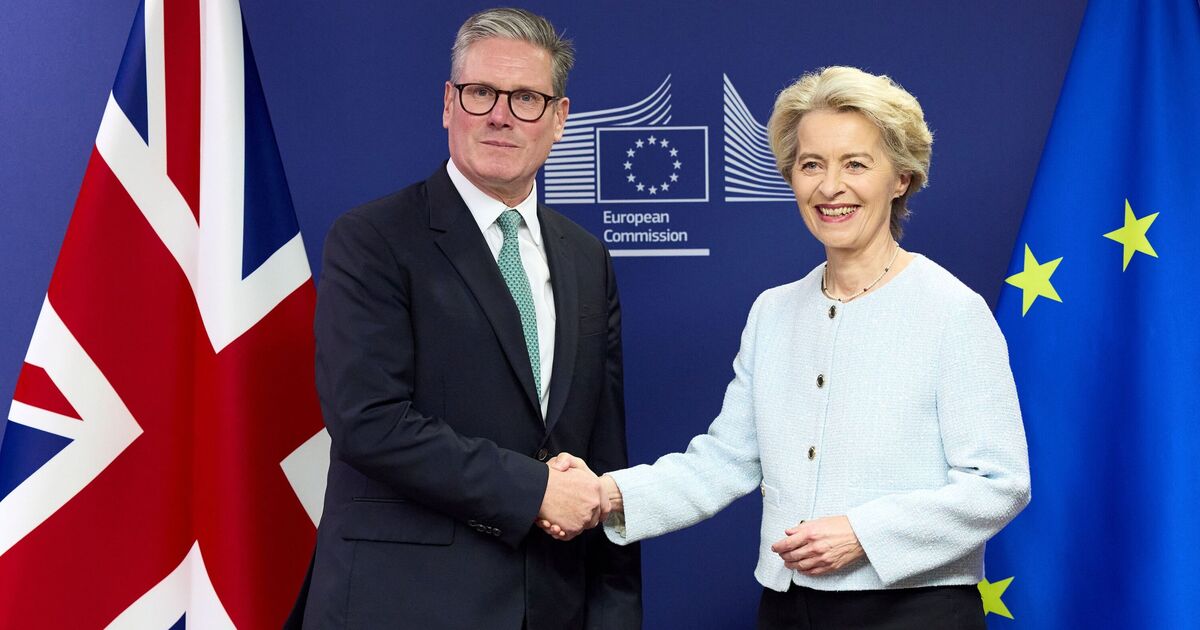Sir Keir Starmer has today promised to “make Brexit work” at a meeting with European Commission president Ursula von der Leyen.But this could come at a cost, as EU officials will likely demand Keir Starmer accepts 30,000 migrants and their families to the UK in order to reset relations with the bloc.
The Prime Minister is in Brussels as he attempts to develop a framework for how the UK and EU will work together in “dangerous times”.
Since his election victory, Sir Keir has worked hard to revitalise the country’s relationship with the EU after years of strain following Brexit.
Despite pledging not to rejoin the bloc’s single market or customs union, Sir Keir is under pressure to make concessions in areas such as youth mobility, fishing and migration in order to obtain the cooperation he believes crucial to addressing the country’s biggest challenges.
Sir Keir is expected to say that at a time of growing political instability in the Middle East combined with war in Ukraine and the ongoing migrant crisis, cooperation on shared interests has never been more important.
Ahead of his trip, Sir Keir said: “The UK is undeniably stronger when it works in lockstep with its closest international partners. This has never been more important – with war, conflict and insecurity all knocking on Europe’s door.
“We will only be able to tackle these challenges by putting our collective weight behind them, which is why I am so determined to put the Brexit years behind us and establish a more pragmatic and mature relationship with the European Union.
“Better cooperation with the EU will deliver the benefits the British people deserve – securing our borders, keeping us safe and boosting economic growth.”
But the EU is likely to want concessions for Britain, as it seeks assurances about the UK’s commitment to working for in the interests of all parties.
According to the Times, Ms von der Leyen will want the UK to agree to a new asylum pact from 2026 which will see member states resettle a set number of asylum seekers. It is believed that this figure could be as many as 30,000 per year.
It is also believed that the EU will push the idea of a youth mobility scheme, something it sees as simple to implement and a gesture of goodwill.
One EU official told the Guardian: “The commission mainly wants to see if Starmer is willing to engage on the detail of a youth mobility scheme. If he shows a willingness to do so, that could unlock a lot of other ‘low-hanging fruit’ such as a defence deal.”
Anand Menon, the director of the UK in a Changing Europe thinktank, said: “There is a sense of apprehension that nice talk is all there is, and when it comes to the substance either the Labour party isn’t really willing to do anything or doesn’t know what it wants. A lot of people are looking at this meeting to see if there’s any meat in the sandwich.”
Thus far Sir Keir has been careful to not commit to any concessions, repeatedly ruling out the prospect of a two-way youth mobility scheme being reintroduced, despite the growing calls.
The EU is also reported to be keen on securing long-term access to British waters for European fishing vessels, with the current EU-UK fisheries deal due to expire at the end of June 2026.








